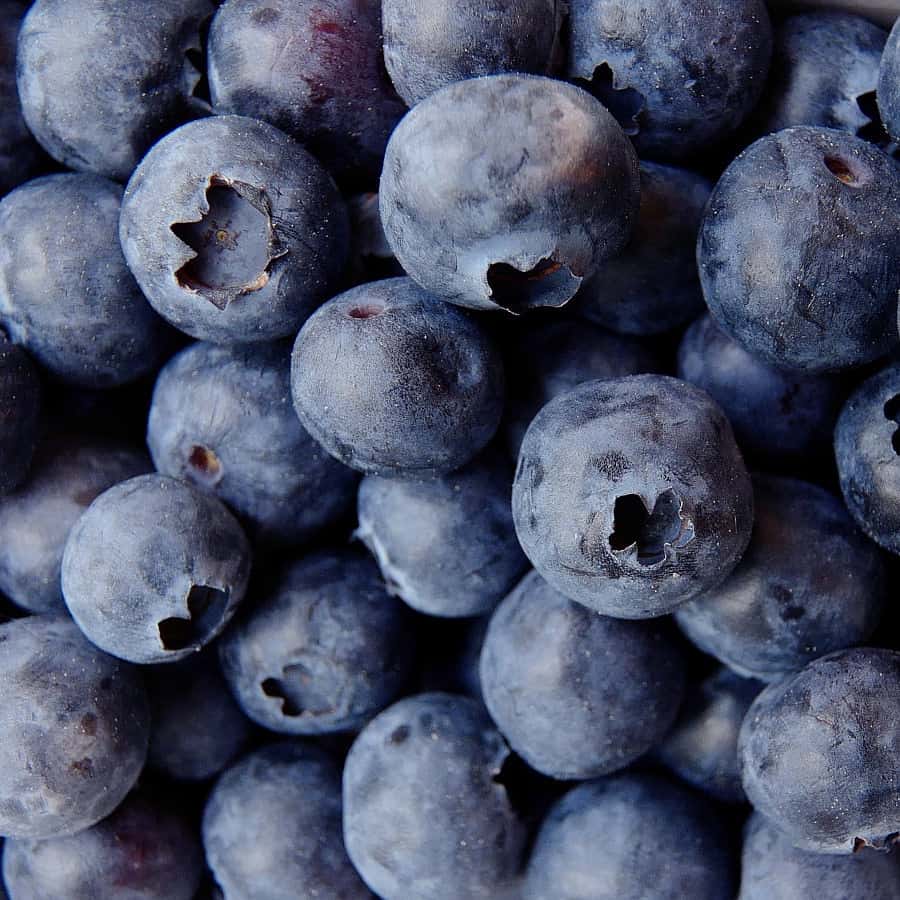
Erectile dysfunction is surprisingly common. A very old study published in the American Journal of Medicine (Feb. 2007) reported the overall ED prevalence in men over 20 was 18.4%. Throw in a health condition such as hypertension or diabetes and the numbers jump dramatically. One review estimated that as many as 75% of men with elevated blood sugar experience ED (Scientific Reports, July 26, 2024). We now have a number of medications that can be helpful, but many of our readers would prefer a natural approach. Men who eat blueberries, blackberries, cherries and currants may lower their risk of developing erectile dysfunction (ED). That’s because such foods are high in polyphenols. A systematic review in Phytotherapy Research (March 18, 2025) concludes that foods high in such compounds appear to be helpful when it comes to improving erectile function.
Erectile Dysfunction, Blueberries and Other Polyphenols:
A study published in the American Journal of Clinical Nutrition (Jan. 13, 2016) reported that men under 70 years old got the greatest benefit from dietary polyphenols. Flavanones and flavones from citrus fruits were also beneficial, along with the anthocyanin flavonoids found in dark berries like blackberries and blueberries.
The study included about 25,000 middle-aged men, roughly half of the 50,000 or so who have been followed since 1986 in the Health Professionals Follow-Up Study. The volunteers were dentists, pharmacists, optometrists, osteopath physicians, podiatrists, and veterinarians who answer questionnaires about their diets, lifestyle practices and health every few years.
The Benefits of Blueberries:
Over the course of 10 years, nearly one third of the participants reported developing trouble with erections. Men who consumed foods rich in anthocyanins, flavanones and flavones, such as strawberries, red wine, apples and pears in addition to citrus and dark berries, were 10 percent less likely to develop erectile dysfunction.
Erectile Function and Overall Health:
The researchers point out that these compounds also benefit heart health. The men with erectile dysfunction also had less flexible blood vessels overall. They suggest that men and their doctors should use the appearance of ED as a red flag to signal possible cardiovascular problems and make dietary and lifestyle habits that can improve health. It now appears that one of those should be to enjoy dark berries such as blueberries frequently.
A systematic review published on March 18, 2025 in Phytotherapy Research analyzed most of the available research on diet and ED.
Here is the conclusion:
“In conclusion, this systematic review underscores the significant positive impacts of catechin, quercetin, resveratrol, and curcumin on ED, as demonstrated in experimental studies. These compounds are prevalent in the diet, specifically found in legumes, fruits, vegetables, cereals, and beverages. Considering the limitations associated with ED treatments, these compounds emerge as potential dietary agents for the prevention or management of ED. The observed beneficial effects on behavioral, functional, molecular, and hormonal aspects in various experimental models suggest their potential clinical relevance.”
The authors call for comprehensive clinical trials for foods high in polyphenols. It is doubtful that any drug companies will sponsor such research. We doubt that the NIH will either.
Eating Blueberries in Various Ways:
Nutrition scientists have long assumed that people consuming unprocessed foods get more of their nutrients. Now a controlled trial has tested that assumption. The volunteers consumed four foods at different times: raw Elliott blueberries, raw Olympia blueberries, a protein bar made with Elliott blueberries and a shake with the same macronutrients as the protein bar but without blueberries. The Elliott and Olympia blueberries have different polyphenol profiles and concentrations.
While there were some discrepancies in the concentrations of various polyphenols after these different foods were consumed, overall they were minor.
The researchers conclude (American Journal of Clinical Nutrition, April, 2025):
“The present study showed that consumption of blueberry genotypes containing phytochemicals of differential content and bioaccessibility yield similar bioavailability, which was also reflected after intake of a processed form, a blueberry-rich protein bar, relative to whole berries. Although herein we offer a more palatable alternative to enhance daily fruit consumption, it should be acknowledged that the consumption of fresh fruit should be the first option to avoid the potential overintake of macronutrients, such as proteins, fats, and simple sugars, which may coincide with the consumption of typically processed snacks.”
Final Words:
Polyphenols are good for your cardiovascular system. That means they may also be helpful against ED. We are especially fond of blueberries but all sorts of berries are high in polyphenols. Smoothies with berries are a great way to start the day, especially if there is some protein powder mixed in.
It turns out that a diet that is good for the heart is good for other organs as well. A diet that is low in flavanoids and other antioxidants is problematic.
A study published in the Journal of Sexual Medicine, Feb. 2018 reported:
“These data suggest that a higher habitual intake of specific flavonoid-rich foods is associated with reduced ED incidence. Intervention trials are needed to further examine the impact of increasing intakes of commonly consumed flavonoid-rich foods on men’s health.”
Eat berries!
Citations
- Cassidy, A., et al, "Dietary flavonoid intake and incidence of erectile dysfunction," American Journal of Clinical Nutrition, Jan. 13, 2016, doi: 10.3945/ajcn.115.122010
- Santana, M.C., et al, "Bioavailability and pharmacokinetics of (poly)phenols following consumption of selected blueberries and a blueberry-rich protein bar by adult males and females: a randomized, crossover, controlled trial," American Journal of Clinical Nutrition, April, 2025, https://doi.org/10.1016/j.ajcnut.2025.01.028
- Mykoniatis, I.M., et al, "Sexual Dysfunction Among Young Men: Overview of Dietary Components Associated With Erectile Dysfunction ," Journal of Sexual Medicine, Feb. 8, 2018, https://doi.org/10.1016/j.jsxm.2017.12.008
- Geraldo, R., et al, "Effects of Dietary Polyphenols on Vasculogenic Erectile Dysfunction: A Systematic Review of Pre-Clinical Studies," Phytotherapy Research, March 18, 2025, https://doi-org.libproxy.lib.unc.edu/10.1002/ptr.8477

